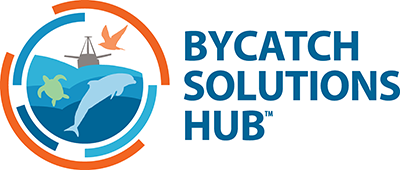A new research study published in Nature this month concludes that a large proportion of marine industrial vessel activity (transport, energy, and fishing) is not publicly tracked, including an alarming 72-76% of the world’s industrial fishing activity.
Led by Global Fishing Watch with University of Wisconsin, Duke University, University of California-Santa Barbara, and Skytruth, the researchers used a novel AI analysis of automatic identification system (AIS) and satellite imagery datasets to compare tracked vs total industrial vessel activity on a global scale from 2017-2021. By comparing reported activity to unreported activity, the study estimated the proportion of overall vessel activity that went untracked over the five years.
These low reporting rates are concerning for all aspects of sustainable fishing, and the potential adverse impacts on ETP bycatch reduction are immense. At its simplest, bycatch mitigation requires two main components; (1) identification of high-risk fisheries to vulnerable populations of non-target wildlife and (2) fisher supported initiatives that implement on-the-water solutions to reduce this risk. Neither of these are possible in an operational environment where the majority of industrial vessels attempt to obscure their location and fishing activities, including their catch composition.
In addition to comparing total vs tracked activity of industrial fishing fleets, researchers were also able to identify illegal fishing activity, such as fishing within other country EEZs and marine protected areas.
To read more, click the links below to access both the research paper in Nature and the Global Fishing Watch press release.
